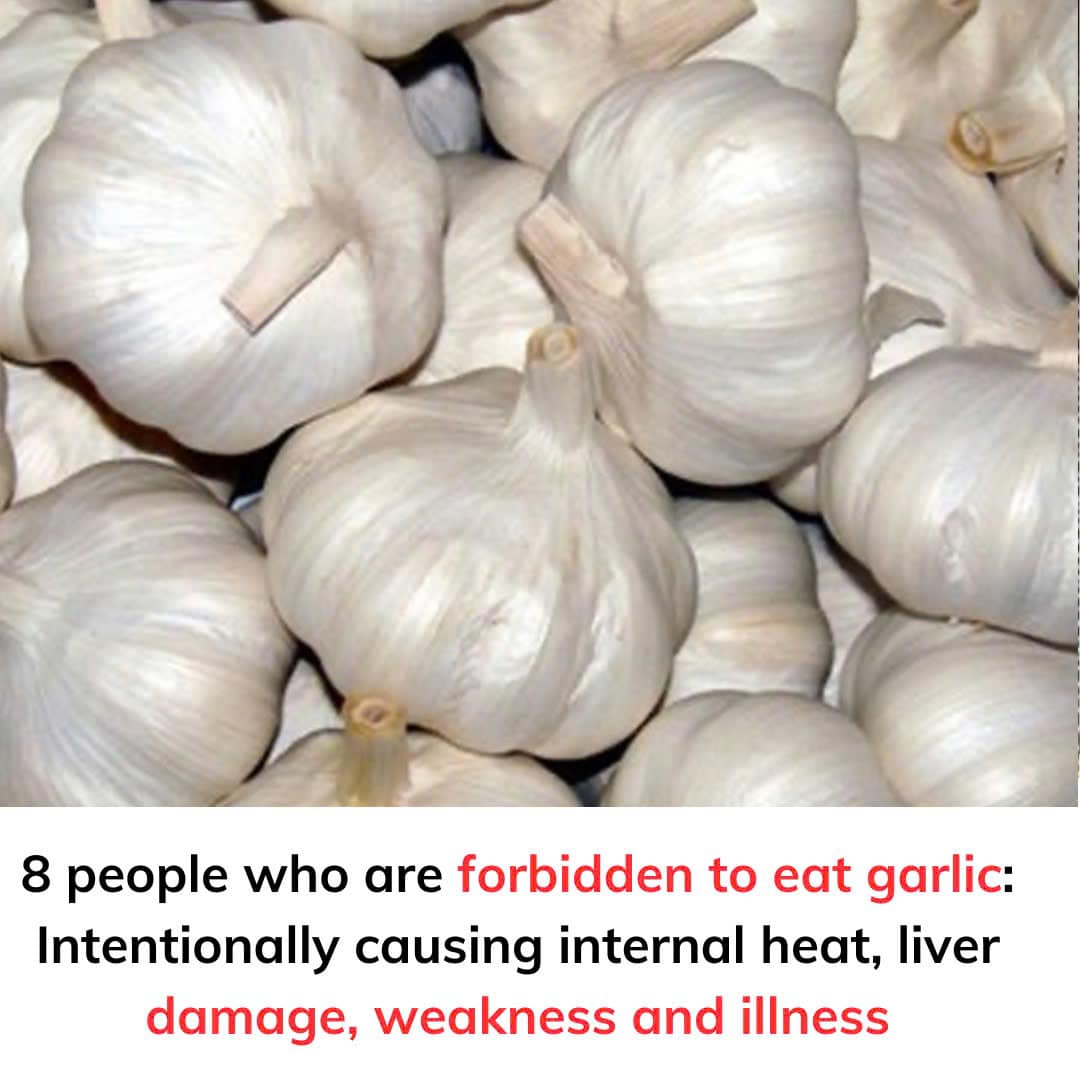
Garlic is often celebrated for its numerous health benefits, including its ability to boost the immune system, lower blood pressure, and combat infections. However, despite its many advantages, garlic isn’t suitable for everyone. Certain individuals may experience adverse effects from consuming garlic, making it essential to understand who should exercise caution.
1. Individuals with Garlic Allergies
Though rare, garlic allergies can lead to severe reactions. Symptoms may include skin rashes, swelling, difficulty breathing, and even anaphylaxis. Those with known allergies should avoid garlic in all forms, including raw, cooked, or as a supplement. Zee News+8Peptiko.gr+8Wikipedia+8
2. People with Bleeding Disorders or on Blood Thinners
Garlic has natural blood-thinning properties due to its high allicin content. While this can be beneficial for some, it poses risks for individuals with bleeding disorders or those taking anticoagulant medications like warfarin. Consuming garlic in such cases can exacerbate bleeding tendencies. Peptiko.gr+1Verywell Health+1
3. Patients with Gastrointestinal Issues
Garlic is high in fructans, a type of carbohydrate that can be difficult to digest for some people. This can lead to gastrointestinal discomfort, especially in individuals with conditions like irritable bowel syndrome (IBS), acid reflux, or stomach ulcers. Peptiko.gr+1Slurrp+1
4. Individuals with Low Blood Pressure
While garlic is known to lower blood pressure, this effect can be problematic for those with already low blood pressure (hypotension). Consuming garlic may cause blood pressure to drop too low, leading to symptoms such as dizziness, fainting, and fatigue. Verywell Health+3Peptiko.gr+3Verywell Health+3
5. Pregnant and Breastfeeding Women
Moderate consumption of garlic is generally safe during pregnancy and breastfeeding. However, excessive intake may pose risks, such as increasing the risk of bleeding during delivery or altering the taste of breast milk, which some infants may find unpalatable. Peptiko.gr
6. People with Liver Disease
Garlic contains compounds that can be toxic to the liver in large amounts. Individuals with liver disease or compromised liver function should avoid excessive garlic intake, as it may worsen their condition. Peptiko.gr
7. Individuals with Hypoglycemia or on Diabetes Medication
Garlic has been shown to lower blood sugar levels, which can be beneficial for people with diabetes. However, for patients with hypoglycemia or those taking diabetes medications, garlic may cause blood sugar levels to drop too low, leading to symptoms such as shakiness, sweating, and confusion. Peptiko.gr
8. People with Thyroid Disorders
Garlic contains goitrogens, compounds that can interfere with thyroid function by inhibiting iodine uptake. While this is generally not a concern for healthy individuals, those with thyroid disorders, such as hypothyroidism, should be cautious with garlic consumption, especially in raw form. Peptiko.gr
Additional Considerations:
- Topical Use: Applying raw garlic to the skin can cause severe irritation or burns, particularly in individuals with sensitive skin. Peptiko.gr
- Interaction with Medications: Garlic may interact with various medications, including those for HIV/AIDS, increasing the risk of side effects.
- Religious and Cultural Practices: Certain religious practices, such as Jainism, prohibit the consumption of garlic due to beliefs about its effects on the body and mind. Wikipedia
Conclusion:
While garlic offers numerous health benefits, it’s not suitable for everyone. Individuals with specific health conditions, allergies, or those on certain medications should consult with healthcare professionals before incorporating garlic into their diet. Being informed about the potential risks ensures that you can enjoy the benefits of garlic without compromising your health.



